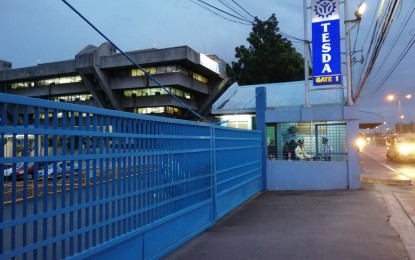News
TESDA gears for alternative learning modes, safety measures

In a phone interview with the Philippine News Agency (PNA) on Tuesday, TESDA Secretary Isidro Lapeña said this would include several flexible modes of learning, such as face-to-face, online, “blended” or a combination of face-to-face and online, distance learning, as well as a combination of distance and face-to-face learning. (PNA file photo by Cristina Arayata)
MANILA — Learners of the Technical Education and Skills Development Authority (TESDA) may expect the implementation of new modes of learning and safety precautions as the agency plans to resume classes by June.
In a phone interview with the Philippine News Agency (PNA) on Tuesday, TESDA Secretary Isidro Lapeña said this would include several flexible modes of learning, such as face-to-face, online, “blended” or a combination of face-to-face and online, distance learning, as well as a combination of distance and face-to-face learning.
He clarified that the physical classes would only take place in areas where they would be allowed, and subject to the approval of the Inter-Agency Task Force on Emerging Infectious Diseases (IATF-EID).
“TVIs (technical vocational institutions) can (also) adopt flexible learning modes, should the said plan will be approved (by the IATF-EID),” Lapeña added.
The new learning modes can be applied to the courses that people are going to take for the first time, as well as for the classes that were temporarily halted due to the implementation of the enhanced community quarantine (ECQ).
“Flexible learning modes (are applicable) depending on the courses. Courses like bookkeeping may be fully taken online. For courses like welding which require face-to-face (classes), the blended learning can be adopted,” he explained.
Lapeña also clarified that online classes as an alternative mode are different from the online classes he has been advocating since the start of the Luzon-wide ECQ in March.
“What I have been promoting since March is the TOP (TESDA Online Program), wherein most of the courses are only short courses that learners could complete, and not full qualifications,” Lapeña said.
To better ensure safety, TESDA would implement a strict one-meter physical distancing in training workshop areas.
With this, the number of students to be accommodated per schedule would depend on the size of workshop areas, to strictly follow the one-meter physical distancing, he said.
Meanwhile, Lapeña also mentioned that should the IATF-EID approve the conduct of physical classes, he would like to prioritize agriculture courses to help support food security.
“Physical distancing may be well observed in agriculture courses,” Lapeña said.





















